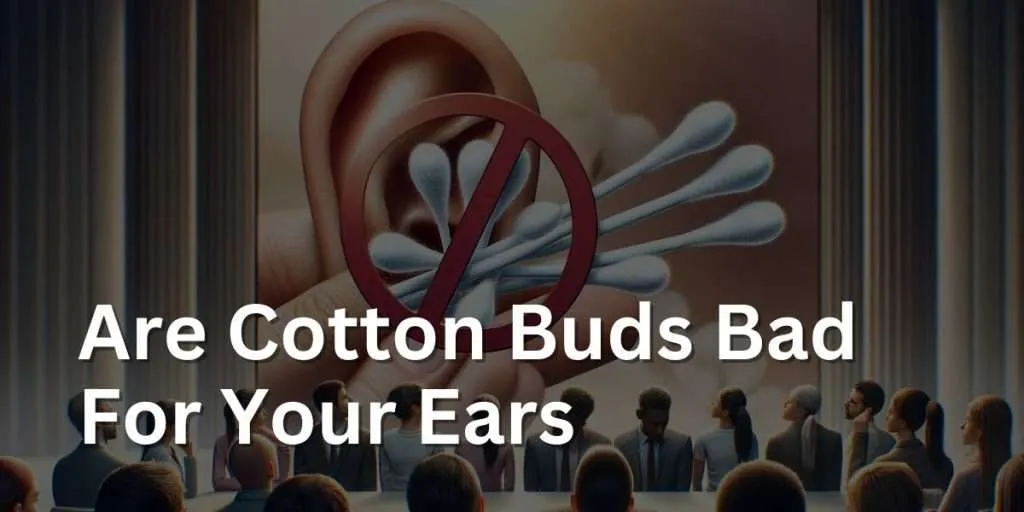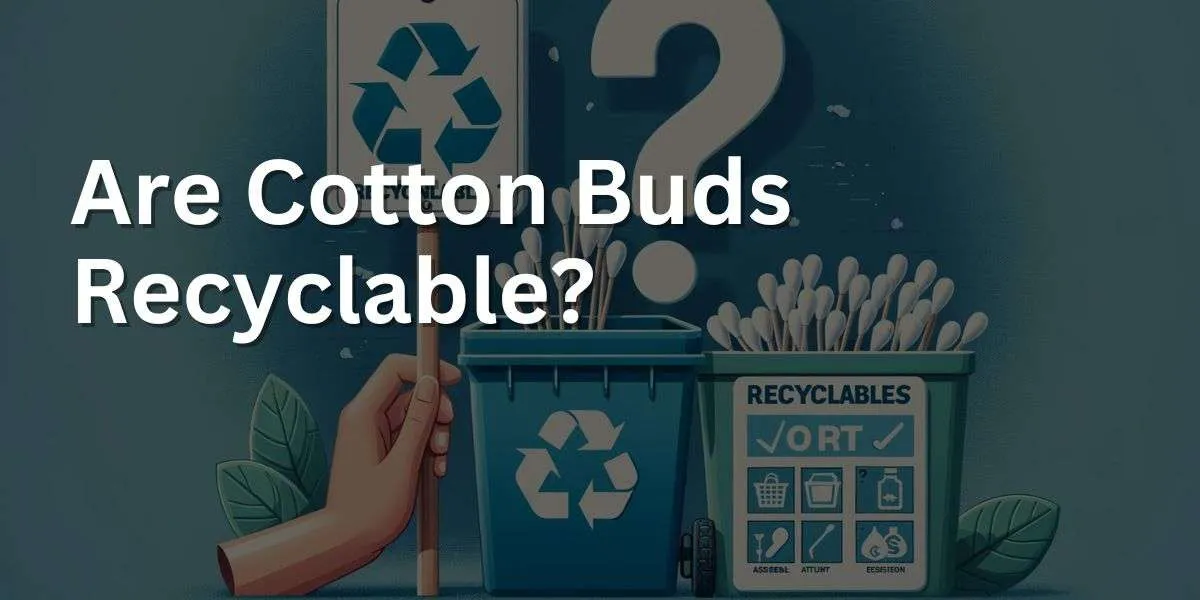The question of whether cotton buds are recyclable strikes at the heart of our daily hygiene practices and their environmental impact.
This discussion will unravel the complexities of recycling cotton buds, examining the materials they’re made from and the challenges these pose to recycling efforts.
You’ll be guided through eco-friendly alternatives and the steps you can take to minimize your ecological footprint without compromising personal care.
Embark on a journey of environmental awareness and responsibility, right here, where we confront the small choices that make a big difference.
Key Takeaways: Recycling Cotton Buds
Plastic cotton buds are not recyclable. Cotton buds with plastic stems are not typically recyclable and can cause significant environmental issues if flushed down the toilet.
Paper or bamboo options. Cotton buds with paper or bamboo sticks are more eco-friendly and may be compostable, but local recycling rules vary.
Check local recycling guidelines. Always refer to your local waste management policies to understand how to properly dispose of or recycle cotton buds.
Consider reusable alternatives. There are reusable cotton bud options made from silicone or other sustainable materials that can be cleaned and reused.
Impact on marine life. Improper disposal of plastic cotton buds can harm marine life, as they often end up in waterways and oceans.
Are Cotton Buds Bad For The Environment?
Cotton buds can have a negative impact on the environment. These small sticks with a cotton swab on each end are often used for cleaning ears or applying makeup. When people throw them away after use, the cotton buds often end up in landfills or, worse, in water systems like rivers and oceans.
The sticks, which are typically made of plastic, do not break down quickly and can harm wildlife. For example, sea creatures might mistake them for food, which can be dangerous to their health.
There are alternatives to traditional cotton buds that are better for the environment. Many companies now make cotton buds with paper or bamboo sticks, which are biodegradable and less harmful to the environment. Using these types of cotton buds helps to reduce the amount of plastic waste.
Also, people can choose to use reusable items like washcloths or ear cleaning tools that can be cleaned and used again, cutting down on waste even more. Making these small changes in daily habits can be a positive step towards protecting the natural world and the animals that live in it.
If you are aiming to do your best for the environment, what you do with your waste, and being aware of how much waste you create in the first place, is one of the best places to start. Cotton buds are a staple in many households often being used on a daily basis. So what do you do with them when you are done?
Are Eco-Friendly Cotton Buds Biodegradable
So, if we can’t recycle cotton buds is there another alternative to putting them in the bin?
Here the answer gets a bit more complicated as it depends on exactly what your cotton bud is made of, but, generally if the cotton bud has a paper, wooden or bamboo stem, and the cotton swab part is made of 100% cotton then it will be biodegradable and you should be able to put it in the compost.
Of course there are a few caveats to this advice, you don’t want to compost cotton buds that have been soaked in chemicals such as nail polish remover, a bit of ear wax is fine for the compost but harsh chemicals are certainly best avoided.
If you don’t compost at home for use in the garden then you may be able to dispose of cotton buds in your food waste bin. Again you need to make sure the stems are biodegradable, paper/card, wood or bamboo and that the tips are 100% cotton, and that they have not been soaked in any nasty chemicals. You should check with your local council to see if they will accept cotton buds in your food waste.
Think About the Packaging Of Cotton Buds
When you are buying cotton buds it isn’t just the buds themselves you need to think about. You should also consider the packaging. While cotton buds with plastic stems are now banned in England there is not a ban on plastic packaging and so many brands still come in a plastic tub, or a tub with a plastic lid.
Thankfully many more eco-conscious brands make bamboo stemmed cotton buds that come in recycled cardboard packaging that can either be recycled again in your kerbside recycling or placed in your compost.
Can Cotton Buds Be Composted
Cotton buds can be composted if they are made from organic materials. The cotton part of the bud is biodegradable as it comes from a natural source. When placed in a compost bin, the cotton part will break down over time, turning into nutrient-rich soil that can help plants grow. It’s like giving back to the Earth what came from it, completing a natural cycle.
However, this only works if the stick part of the cotton bud is also made from a material that can decompose naturally, like paper or bamboo. These materials break down in compost just like the cotton does. On the other hand, if the stick is made of plastic, it cannot be composted. Plastic does not break down in a compost bin and can be harmful to the environment.
So, when choosing cotton buds for composting, it’s important to pick the ones with sticks from compostable materials. By doing this, not only does one reduce waste, but they also help create a healthier environment.

Are Cotton Buds Bad For Your Ears?
Cotton buds can be bad for your ears if not used properly. Doctors and health experts often warn that inserting cotton buds into the ear canal can push earwax deeper into the ear. This can lead to blockages, ear infections, and sometimes, even damage to the eardrum. The ear canal has its own natural cleaning system that usually removes excess earwax without any help.
Instead of using cotton buds, there are safer ways to take care of your ears. One can clean the outer ear with a damp cloth. If someone has a problem with too much earwax or a blocked ear canal, it’s best to visit a healthcare provider.
They have special tools and methods to safely clean the ears without the risk of damage. So while cotton buds have many uses, it’s better to avoid using them inside the ears to keep your hearing safe.





